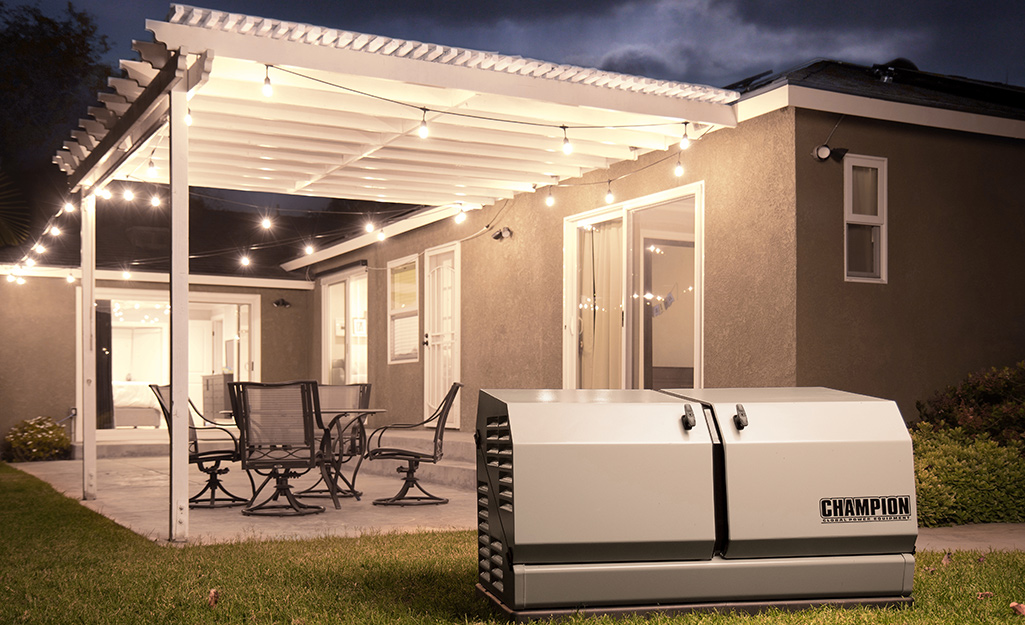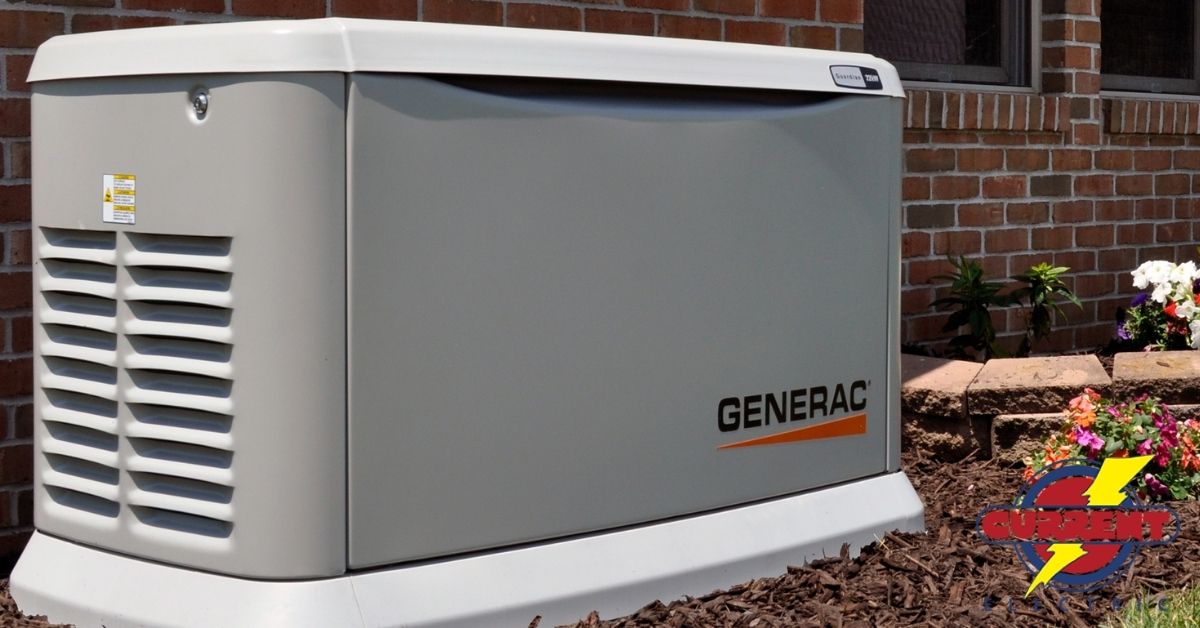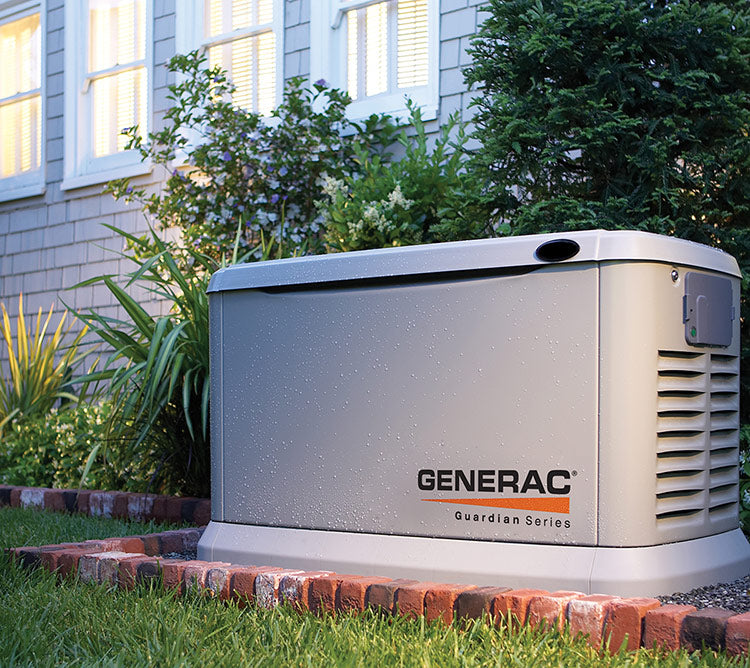Dunbar's Electric - Licensed, Bonded and Insured - #108961
Text: 661 429 0929
There are three basic types of generators: whole house generators, portable generators and inverter generators.
- Inverter generators are ideal for camping, boating and other recreational activities. They operate quieter than other generators and provide power for lights, heaters, fans, radios, smart phones and more.
- Whole house generators (home standby generators) are the best generators for home use. They are designed to provide ample power for your appliances and HVAC systems.
- Portable generators are often used on job sites to power air compressors, nail guns, saws, hammer drills and other equipment. Most are loud, but there are quiet portable generators too.
Whole House Generators

Whole house generators, or home standby generators, keep your home's systems and appliances powered up whenever you get separated from the power grid.
- Get automatic emergency backup power within seconds of an outage.
- Whole house generators provide blackout protection seven days a week, 24-hours a day and are permanently installed.
- You can operate the machine using an existing fuel supply such as natural gas or liquid propane.
- Whole house generators are flexible enough to power your entire home or just supply power to a few designated circuits.
- When choosing the best generator for home backup, consider models with special features that run the unit more quietly or conduct weekly, self-diagnostic tests.
Nothing makes us more conscious of our dependence on electricity than a sudden power outage. You are sitting alone in a dark room, full of questions about how to deal with your predicament.
- When was the last time you saved a project you were working on?
- Do you have a candle? Where is it?
- Should you follow Twitter for updates, or is it even a smart move to save your phone’s battery incase of an emergency?
- But just how long can you wait before you carry on with your normal activities
The severity and frequency of blackouts has been steadily increasing for decades, combined with intensifying weather and aging infrastructure, and the trend shows no signs of changing. If you’re looking to keep your home running through a blackout, a generator is the way to go. However, as with most things, it’s important to choose the right tool for the task at hand.
This portable vs. standby generator comparison article explains the differences between the two and which one is better for you. In general, the main differences lie in the fact that the portable generators are more compact, less expensive, don’t need professional installation and are less-powerful than the standby generators.
However, before comparing their features directly, let’s go further and analyze their strengths and weaknesses.
Portable generator: Definition, pros and cons

Portable generators, as the name suggests, are generators that can be easily moved or transported from one place to another. They are also called backup generators, and are used to provide temporary power when and where it is needed. The most common types are compact ultra-quiet inverter generators and conventional open frame generators.
These generators typically have small to medium sized tanks of 0.9 to 20 gallons and run on diesel, gasoline, propane or natural gas. However, some newer dual-fuel models are designed to use gasoline and propane.
But are all “portable” generators really portable? Not all portable generators are portable. Some weigh over 150 pounds and are huge. Features that make them portable include large wheels and handles, which makes them eligible for classification as “portable” models.
These types of generators can be used in homes, construction sites and for outdoor recreational purposes. Their output power ranges from about 1,000 to 25,000 watts. Portable generators that power around 1000W to 2500W typically have easy-to-grip handles to take them anywhere with you, and their dry weight is typically under 50 pounds. For example, the WEN 56200i alternator weighs 48 pounds, while the Honda EU2200i weighs about 40 pounds.
Pros:
- Small and lightweight
- Can be used in RV, outdoor and home
- Some have encapsulated designs
- The “portable” ones are really quiet
- Not as expensive as standby type
Cons:
- Usually have a small tank
- Some are not so portable
What is a standby generator?
There are two primary types of generators: portable and standby. While these two types of generators perform the same basic function, they are vastly different.
- A portable generator runs on gasoline, and you have to pull it out of storage, connect it to your home’s breaker panel, and start it up manually if your power goes out.
- A home standby generator (also called a stationary generator or a whole-house generator) runs on natural gas or propane, and it’s permanently connected to your home’s exterior.
Advantages of standby generators
- Reliability: Since it runs on natural gas or propane, a standby generator can operate for days or weeks on a whole-house propane tank—or indefinitely if you have natural gas. To run all day, a standby generator typically uses between 13 to 48 gallons of liquid propane or natural gas (depending on the size of your home and how much power you’re using). Disclosure1
- Convenience: A standby generator turns on automatically when there’s a power outage, and it can power everything in your home at once. There’s no need to manually connect anything.
- Quiet: While portable generators are notoriously noisy, a standby generator is insulated and has weatherproof housing, which keeps it quiet.
- Power output: Standby generators are much more powerful than their portable counterparts, with a power output of between 8,000 to 20,000 watts (compared to only 3,000 to 8,500 watts by a portable generator). Disclosure1
- Comfort and safety during storms: Whether it’s a hurricane in the summer or an ice storm in the winter, all types of weather incidents can unexpectedly knock out your power—sometimes for several hours or even days. A standby generator will keep your appliances, HVAC unit, and other important electronic devices up and running for your family’s comfort and safety.
Other considerations
 The primary reason people choose a portable generator over a standby generator is due to one simple factor: cost. However, Dave Trezza, who oversees generator testing for Consumer Reports, says, “Home standby generators are expensive, but they’re the gold standard in backup power, and they outperform all other types of generators in our ratings. If you can afford it, I’d tell you to pick a home standby generator every time.” Disclosure1
The primary reason people choose a portable generator over a standby generator is due to one simple factor: cost. However, Dave Trezza, who oversees generator testing for Consumer Reports, says, “Home standby generators are expensive, but they’re the gold standard in backup power, and they outperform all other types of generators in our ratings. If you can afford it, I’d tell you to pick a home standby generator every time.” Disclosure1
The cost of investing in a home standby generator is between $2,000 to $5,000, with installation costs ranging from a few thousand dollars to $10,000 or more. Disclosure1 However, a standby generator’s reliability, convenience, noiselessness, and power output make it the obvious choice to keep your home up and running.
Learn more
When making any type of improvements to your home, such as installing a standby generator, be sure to talk with your McGriff Family Risk Manager to ensure you have the right amount of insurance coverage on your home.
BENEFITS OF HAVING A WHOLE-HOUSE STANDBY GENERATOR

Think about this for a second - what would you do if you lost power in your house for an extended period of time? You would have no light, no appliances, the food in your refrigerator would be spoiled, and you can say goodbye to your electronics. Needless to say, power outages can cause extreme discomfort if you don’t have an alternate power source.
Having a backup generator in your home means that in the unfortunate event of a power outage, you will have a dependable energy solution that will allow you to use your lights, appliances, and other electronics. Whole-house generators, also known as standby generators, are typically much larger and more expensive than portable generators, but they offer maximum benefits when you need them the most.
WHAT ARE THE BENEFITS OF A STANDBY GENERATOR VS. PORTABLE GENERATOR?
Unlike a portable generator, a whole-house standby generator can power all of your home’s major appliances, including your HVAC system, refrigerator/freezer, alarm system, garage door opener, sump pump, water heater, and more. Having power during an outage also means your electronics, such as cell phones and laptops, will be kept charged. While a standby generator’s purpose is to provide electricity to your entire home during an outage, it can also be tailored to only power specific appliances, based upon your preferences.
BENEFITS OF WHOLE-HOUSE STANDBY GENERATORS:
- Improved safety & security – Unlike portable units, whole-house standby generators don't release fumes and therefore prevent carbon monoxide buildup inside your home. In addition, they allow for lighting in the event of a blackout, helping to prevent trips and falls, and other related accidents.
- Enhanced efficiency – While portable generators can only deliver a limited amount of power considering they need to be refilled with gas every few hours, whole-house standby generators can provide any given amount power for as long as necessary since they connect to an existing gas line.
- Super convenient – Standby generators turn on automatically as soon as the power goes out, providing electricity for essential appliances, including air conditioners, water heaters, refrigerators, freezers, washing machines, and more. Portable generators, on the other hand, must be manually turned on and may not be able to power items hardwired to the home.
- Saves money – Since whole-house generators help to prevent problems like spoiled food in the refrigerator or frozen pipes during the winter, you can steer clear of unexpected costs and headaches. If you were to experience several power outages over ten years, for example, the savings that a standby generator could provide would add up, providing a positive a return on your investment.
SAFETY AND SECURITY
During a blackout in your home, the risk of falling or tripping over something because you can’t see your surroundings are much higher. A whole-house generator solves this problem and ensures you will be able to comfortably move from room to room without worrying about tripping over something in the dark.
Separately, whole-house generators do not allow for the buildup of carbon monoxide inside your home, which is a common issue with portable generators. Standby generators do not emit as many fumes as portable generators do, making them better for your overall health and home environment.
Standby generators essentially act as an insurance policy for your home, giving you peace of mind that your home will be protected during a blackout.
EFFICIENCY
Whole-house generators can power as much as you need for as long as you need. Compared to portable generators, which have a threshold for the amount of power they can provide, whole-house generators can provide power to your home and there will be no need to refuel it. In the event you are away from your home or on vacation during a power outage, whole-house generators will ensure that your sump pump is running and your home’s alarm system is working.
ULTIMATE CONVENIENCE
With the flip of a switch, your whole-house generator will provide total home function during a power outage. When the power goes out, you simply turn on the power switch of the generator and your electricity will be up and running within a few seconds. Standby generators guarantee that you will have access to all of your major appliances and critical functions of your home.
SAVE MONEY DOWN THE LINE
While the initial purchase and installation of a standby generator can be costly, the investment will save you money down the line in appliance repairs and potential pipe replacements. If there is a power outage during the winter, a standby generator can prevent your home’s pipes from freezing. Whole-house generators also keep your refrigerator running, meaning you don’t have to worry about throwing away spoiled food.
Don’t wait until the next power outage to decide on installing a whole-house generator. If you want guaranteed safety and security during a blackout, Current Electric is here to help. Contact us today to speak with one of our generator specialists.

 However,
However,